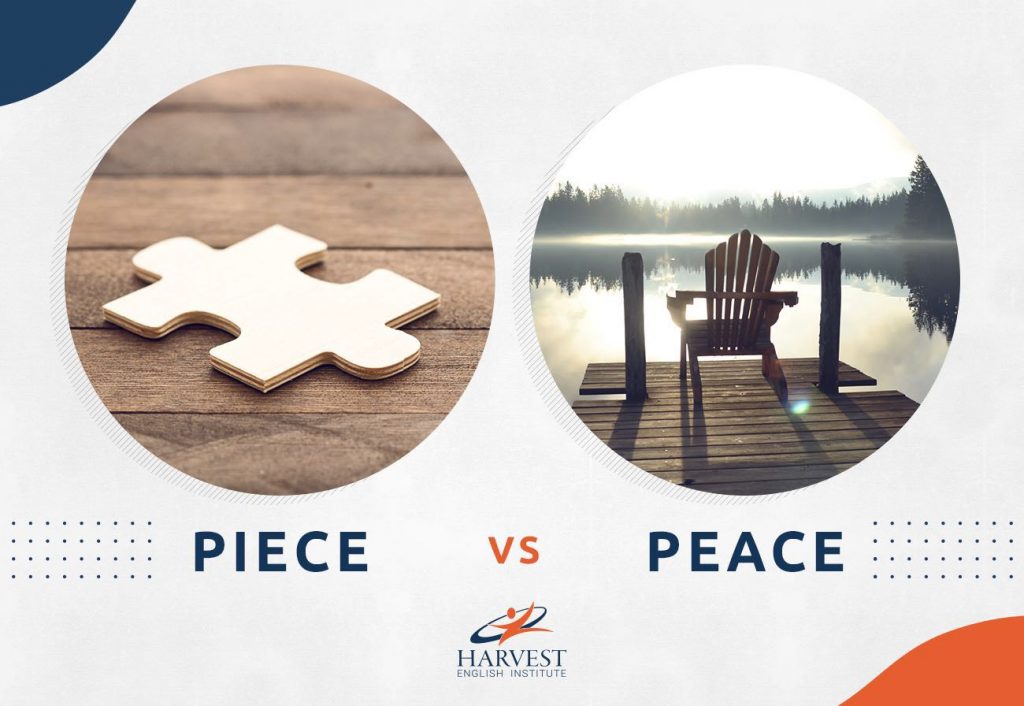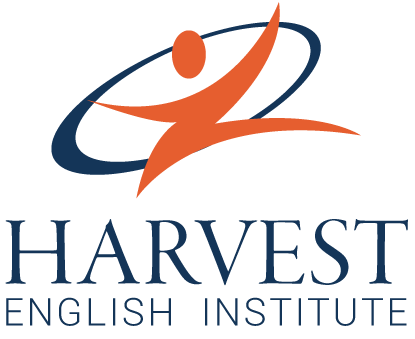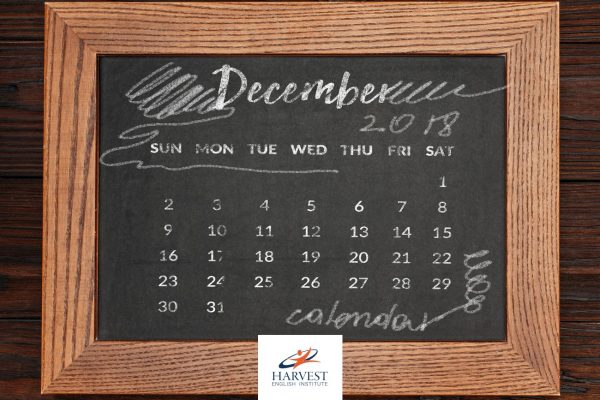In our second instalment of common mistakes made by students learning the English language we are looking at similar sounding English words, known as homonyms. It’s a tricky one the English language and for those just starting out on their language learning venture, getting your head around which word to use in a sentence when they both sound the same but have difference spellings and entirely different meanings can boggle the mind!
This is where we step in! At the Harvest English Institute it’s our job to help you get to grips with your English vocabulary.
To get you started we have put together a list of the likely vocab culprits that could catch you out.
 It’s & its
It’s & its
- It’s – Short for “it is” or “it has”, for example “it’s raining outside”
- Its – The meaning of it, for example “The tree has lost its leaves”
Loose & lose
- Loose – When something is for example loose fitting
- Lose – When you lose something, for example “Did you lose your keys?”
Their, there & they’re
- Their – Belongs to “them”, for example “Is that their luggage?”
- There – In that place, for example “The supermarket it over there”
- They’re – Short for “they are”, for example “They’re late”
 Your & you’re
Your & you’re
- Your – Belongs to you, for example “Is that your pen?”
- You’re – Short for “you are”, for example “You’re are just in time”
Here & hear
- Here – In this place, for example “The cinema is over here”
- Hear – Using your ears to listen, for example “I can’t hear you”
Won & one
- Won – To win something, for example “I can’t believe you won!?”
- One – The number 1
Two, to & too
- Two – The number 2
- To – Has multiple meanings but for example “I am going to the station”
- Too – Also, for example “Can I come too?”
 Dessert & desert
Dessert & desert
- Dessert – A pudding eaten at the end of a meal
- Desert – A landscape with sand and few plants, for example the Sahara Desert
Capital & capitol
- Capital – A capital letter, for example “ABC”
- Capitol – A capitol city, for example “the capitol city of the United States is Washington D.C.”
By, buy & bye
- By – Refers to something that is near, for example “The toilets are by the entrance”
- Buy – To purchase something, for example “I would like to buy some bread”
- Bye – Short for “goodbye”
Stationary & stationery
- Stationary – Something that is motionless, for example “Is that car stationary?”
- Stationery – Items you would use in a classroom of office, for example pens and pencils
 Compliment & complement
Compliment & complement
- Compliment – To flatter someone, for example “You look beautiful!”
- Complement – Something that goes well with something else, for example “The wine complemented the meal”
Brake & break
- Brake – The brakes of a vehicle, for example “You will need to brake at this junction”
- Break – Has two meanings, for example “to break something in two” or “I need to take a break from this”
Coarse & course
- Coarse – Something that is rough feeling, for example “they had very coarse hair”
- Course – Has multiple meanings, for example “I am taking an English language course”, “of course, I would love a drink”, “what would you like for your main course?” and “which golf course do you play at?”
 Piece & peace
Piece & peace
- Piece – A portion of something, for example “Please can I have a piece of chocolate?”
- Peace – Refers to the absence of war or a feeling of contentment, for example “This park is very peaceful”
Whole & hole
- Whole – Meaning “entire”, for example “I could eat that whole chicken”
- Hole – An opening, for example “The rabbit went down the hole”
Stare & stair
- Stare – To gaze, for example “I can’t help but stare at it”
- Stair – A single step of a staircase
Know & no
- Know – To be aware of something, for example “I already know how to do that”
- No – To reject something, for example “No thank you, I would not like a coffee”
This are just a starting point and you will come across plenty more similar homonyms but hopefully it has got you thinking. Let us know how this blog has helped you and what challenges you have found learning the English language by letting us know in the comments below.



